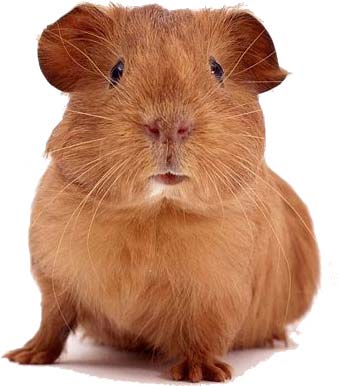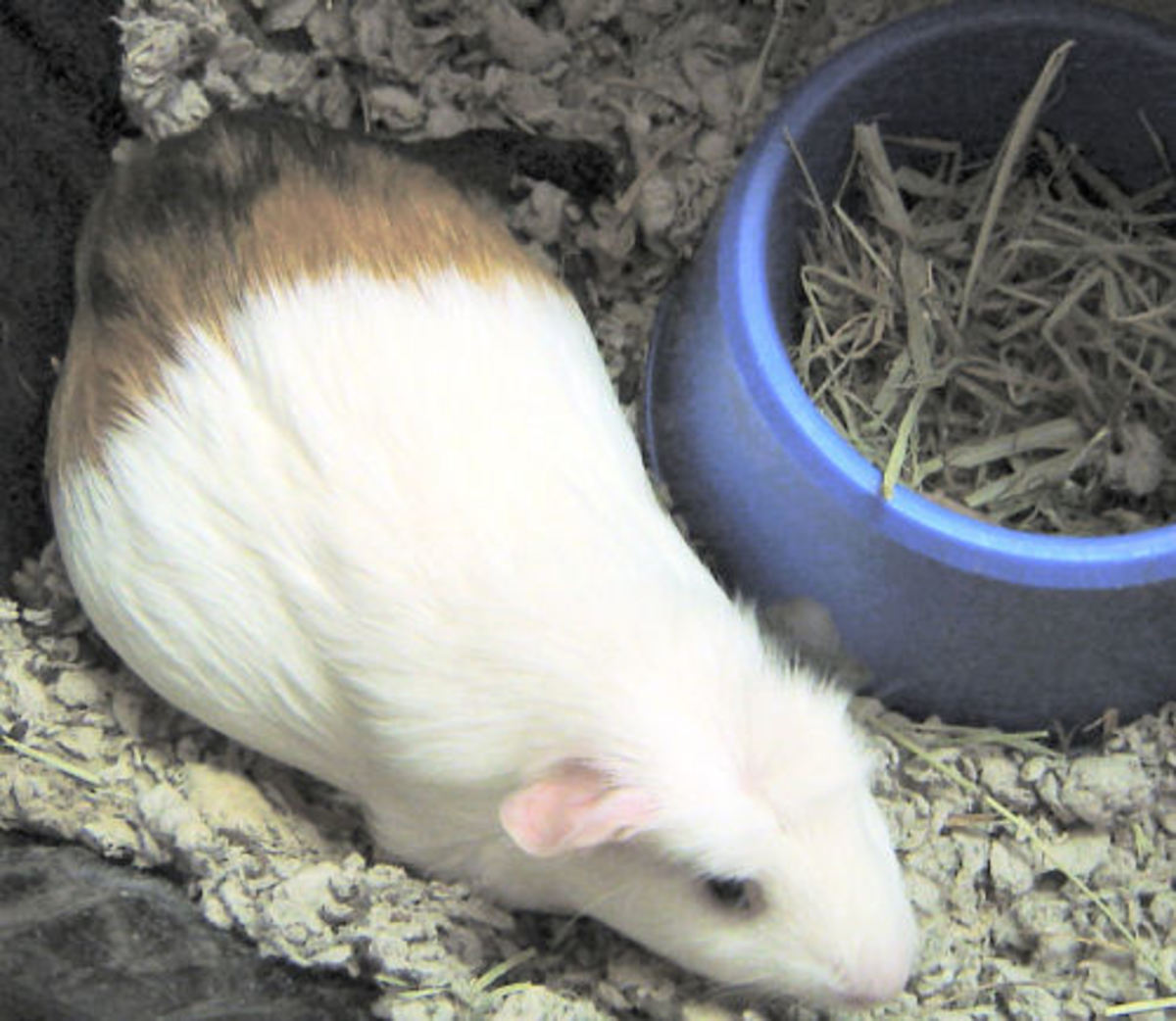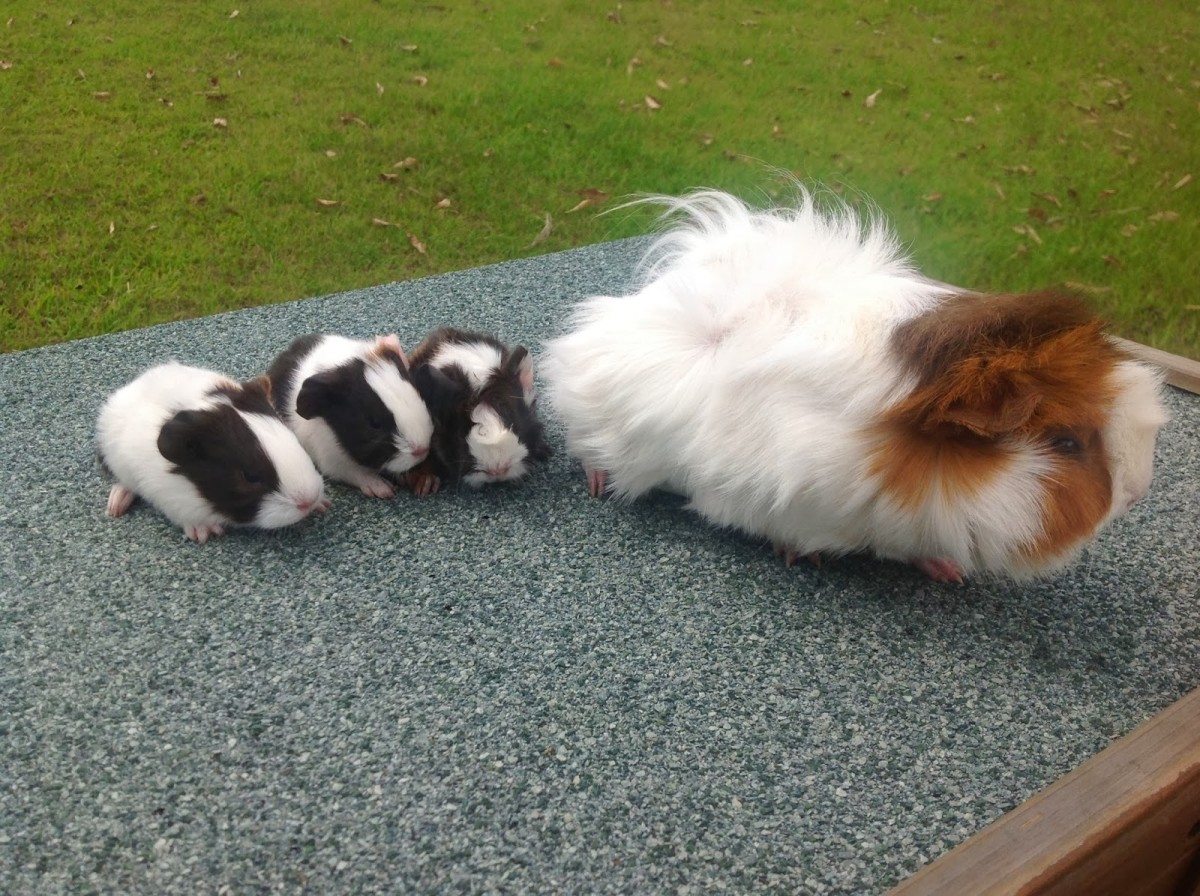The History of the Guinea Pig

Guinea pigs are neither from New Guinea nor are they pigs. Right away, that should give you some indication of the somewhat complicated history of the domestic guinea pig (cavia porcellus). Hang on to the bar and enjoy the ride.
Origins: Your Guess Is As Good As Mine
Logic dictates that in order for there to be a domestic guinea pig, there first had to be a wild guinea pig. However, although there are about twenty species in South America that look like guinea pigs and even make grunts and squeals like guinea pigs, they are a lot different from domestic guinea pigs. The wild ones that you can see today are all of one or two colors, are slimmer, have a different structure of digestive organs and very rarely poop, in order to deter predators from tracking them.
Perhaps there was always cavia porcellus, and they just no longer exist in the wild. Perhaps the direct species that sired cavia porcellus have become extinct. Or perhaps there was interbreeding between, say the cavia tschudi and the kerodon rupestris. Perhaps we will never know.
The Incas
What is known that the Incas were the first to domesticate, selectively breed and live with guinea pigs about 5000 years ago. Guinea pigs were originally bred as sacrifices to the gods and as dinner. Strains were created based not on their color or length of fur (as are today), but on the flavor of their meat. Even today in places like Peru and Patagonia, guinea pigs are considered livestock to be harvested and not pets.
When the European conquered the Inca Empire in the 1500's, they in turn were conquered by the cute chubby cavies all over the place. Along with the other treasures of the Inca Empire, cavies were shipped to Europe as an ultimate luxury and curiosity.
Where Did The Name Come From?
There are many theories as to why guinea pigs are called guinea pigs. The route from South America to Europe was very long. A place the ships rested was New Guinea, or thought to be New Guinea. When cavies were sold in England, they were sold for one guinea, which was a lot of money back then.
That explains the "guinea" part. What about the "pig"? Although this writer has not tasted guinea pig meat, she has read that the meat tastes like rabbit and not pork. So the taste of the meat was out as a reason for the name. The best theory available is that the "pig" part came from listening to the cavies' noises, which include a lot of grunting, squeaking and squealing. Even the German name for "guinea pig", Meerschweinschen, translates into "little pigs from across the sea".
In And Out Of The Lab
Look up guinea pigs in the dictionary. Oftentimes, the definition will include "something experimented on." Guinea pigs share the same quirk as humans in that we both cannot manufacture Vitamin C in our bodies. Both guinea pig and man (and no other creature) need to get their Vitamin C from food. And guinea pigs are a lot smaller and cooperative than people. So they inevitably became laboratory animals.
In fact, Vitamin C was discovered in 1907 because of research on guinea pigs. Guinea pigs lay their lives down so we could have medicines for diphtheria, tuberculosis, asthma and replacement heart valves, among other things. Guinea pigs are not the experimental animal of choice because of their long gestation and low birth rates. But guinea pigs are still used in some medical research projects.
Today, guinea pigs hold a cherished place in the hearts and homes of modern Westerners. Many people meet their first guinea pig as children. Guinea pigs make great pets for kids as well as adults. Although some guinea pigs today are still used to nourish us, and some to make us live longer, others are treated with the respect and thanks of a quirky and comical companion in this quirky and sometimes comical existence. It is good we have someone like a guinea pig to show us how to live.






